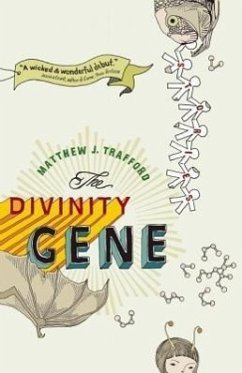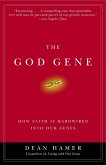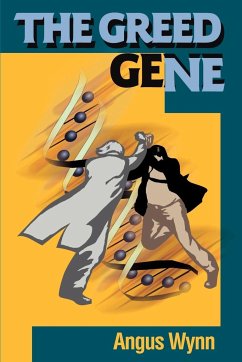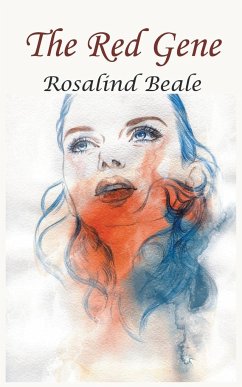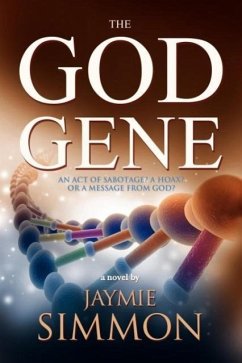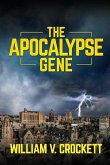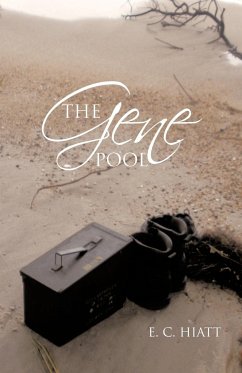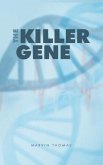Q&A with Matthew j. Trafford (not from the flap) "Q: In The Divinity Gene," we seem to be at the crossroads of science and spirituality. Where would you say you fit as a writer, genre-wise? A: Both science and spirituality attempt to explain the unknown, and imagination is crucial to both - and imagination is also the driving engine behind fiction and stories. As a writer, I want my stories to reach as many people as possible - anyone who wants to read them and share in my imaginary worlds is most welcome. So genre doesn't really concern me - it's a classification that happens after the writing is done and published; as such, it's mostly the domain of readers, booksellers and critics. I don't think it's my place to say what genre the collection fits into, and I would hope it doesn't fit into just one. I recently gave a reading of "Gutted" - a story about the dissection of a mermaid - and afterwards someone came up to me and said, "You'll probably hate this, but I was thinking that story would be a great world to launch a Dungeons and Dragons campaign." I don't hate that at all. I would love for The Divinity Gene to be embraced by the science fiction, fantasy and role-playing crowd. I would love it if scientists read it. And I'm not going to lie: I'd like it if the high-minded literary set appreciated it as well. I want to find readers who love the book - that's my only goal - and confining the book to one genre seems antithetical to that. Its whole point, as much as it has one, is to experiment with form and genre - almost like a science experiment, in a way. Q: Why did you opt for supernatural elements in your writing to represent the real world and current issues? A: Insofar as it was a choice at all - which it wasn't completely, I just write what I write - it's because we're dealing with fiction here. It's the realm of the imagination, and anyone who picks up a book of fiction knows what they're reading isn't real. In that context, I've never been one for mimetic realism or naturalism - I read, to a certain extent, to escape the real world. Since we're dealing with an imaginary world in any short story, why not make up something outlandish and original, give reign to supernatural things we don't get to experience in our daily lives? I should also say that a lot of the supernatural elements come from very old stories and myths. Because of that, they have a certain symbolic resonance built in, and readers connect with that, are already familiar with it to some extent. Stories of vampires and werewolves and other creatures have been around for thousands of years and are still hugely popular - curiosity about the supernatural is inherent to the human experience, the human imagination. It's part of asking, "What would it be like if things were different?" I think that's the basic question of all fiction. Grounding supernatural elements in realistic situations also allows us to see more about our lives - lets us see the cracks in the "real world" where magic and wonder and awe and the inexplicable can seep in. That's what I'm interested in writing about. Recently I wondered if this penchant for supernatural elements was something I had picked up at some point during my training - perhaps I was being too influenced by what I like to read? - and also wondered whether it was a phase or something integral to my writing self. I then remembered two stories I wrote during my undergrad, before I started seriously studying writing at all. One was about a tiny boy named Little Bobby whose father found him inside a walnut, and the other was about a teenaged necrophiliac vampire hunter in Riviere du Loup (it was for this story I received my first rejection letter, by the way). So clearly this tendency towards the bizarre and supernatural is just something that's always been with me and is just part of being the writer I am. I'm not going to fight it or try to explain it away to anybody. Q: In your story "The Divinity Gene," we're in the year 2029 and it's written as a Wikipedia entry. Technology is currently moving so quickly and new developments are fast becoming irrelevant, i.e., who's to say Wikipedia will still be around in 2029? What made you choose a contemporary technological reference for your futuristic work? A: Of course no one can say for sure, but I'm willing to make you a $5 bet that it will be. What's interesting to me is not the name or lifespan of the online encyclopedia, but the fact that such a thing exists at all - even when we develop new technologies, we often fail to really think outside the box or innovate - we tend to drag older analogue models into the future with us. One could argue that with all the information (good and bad) that the internet offers, we don't need an online encyclopedia per se. Yet Wikipedia is hugely popular - probably because the smarties there figured out how to take the traditional encyclopedia form (something people were familiar with) and use internet technology (hyperlinks) to innovate on it, allowing for instant cross-referencing in a way the paper encyclopedias never really could. On a story level, the challenge was that I wanted to get across a lot of information in a fairly short amount of time; to boot, I was talking about hundreds of Jesus clones with a world-wide presence and trying to explain their genesis, characteristics, challenges and futures - a bit of a tall order for a single section of a short story! It came to me pretty quickly that one of the most efficient ways of doing that would be an encyclopedia entry. And it seemed like an online encyclopedia would make the most sense in a tale about the future. Plus, even though Wikipedia is used worldwide, I hadn't seen any fiction written using its format yet, which surprised me and was something I wanted to try. In the e-book version of The Divinity Gene, we designed it so that many of the hyperlinks in the story actually work - which was another fun innovation. I did change the name from Wikipedia to Poplopedia, thinking that a) Wikipedia might not be around in 18 years, and b) that a number of online encyclopedias would spring up and be in competition with each other (though to my knowledge this hasn't really happened). Q: In terms of the origins of your stories, do you develop your characters first or the concept? And how does one influence the other? A: Almost always the concept first. Most of my stories start for me with a concept, and then I need to figure out the voice or the structure - which are very linked. Sometimes a story is told through a character's voice, but even in those cases I would say that really it's the concept that comes through first for me. Who the person speaking is, and what they feel, and certainly what they look like, all come way after what is actually happening in the story and how it's being told, for me. The way some writers talk about their characters often leaves me perplexed, sometimes envious, sometimes amazed. Writers will talk about "going for walks" with their characters, or talking to them, or having their characters "insist" on doing things the writer never intended - that hasn't been my experience. One of the hardest things for me is giving characters names, which I often change at the last minute with the 'find and replace' function in my word processor - I know writers who find the idea of this abhorrent and somehow cruel or uncaring. "The Divinity Gene" may have one or two too many Daniels in it - something I only noticed after it was finished. I guess for me the characters are so inside the story that I don't let them bleed out into my real life. And yet characters are the lifeblood of any story - they are the people, after all, and that's what readers, who are also people, really care about. So character work becomes a huge part of my editing process, making sure they are three dimensional and believable, making sure the reader has access to (or at least clues to) how each of them is feeling and why they are behaving the way they are, what their relationships are to each other. Hopefully I've been successful at that. Q: You're also working on a novel. What has the difference been in the writing process? And what is your new novel about? A: The process is similar in many ways - not nearly so different as I was expecting. One thing that's really surprising is that, at least for me, there's not really more story to a novel, even though it's so much longer - you just show more of it in a novel. Novels are big and galumphing and sprawling and plot-driven and they rush along, and by necessity are somewhat less language-conscious than short stories. But I'm not going to sacrifice the quality of my prose just because it's a longer work. In a novel I can write a whole chapter - with scenes and all kinds of detail - about something that would be a single sentence in a short story - or something implied in the subtext of a sentence in a short story. And it's very much still in progress - I'm learning as I go, reading lots of novels for a change and putting all my short story ideas on a shelf for another time. My novel is going to be called "The Tworphins." My standard answer is, "It's about twins." But I guess I can tell you a little bit more about it here: it's about orphaned twins - as in, one of the twins has died. More specifically, a group of orphaned twins. More specifically, a cultish group of orphaned twins that claims access to psychic contact with their deceased siblings and tries to recruit a newly bereaved man... well, now I'm giving too much away. Q: Are you an optimist? Do you have a positive outlook for the future? A: Yes and yes. Oh yes. I have a great outlook for the future. Writing is an inherently hopeful act; optimism is wired right into it. So is reading. Without a positive outlook, there's no point in either activity. But I do think in order to move forward in a positive way, we need to be honest about how bad things really are, and how evil each of us can be, and where we're headed if we don't change things. It's only through facing this that we're going to get anywhere good. I think the future will probably hold some pretty challenging moments, but I have great faith in the human spirit of ingenuity, and the ability of people to be selfless and generous in our most dire moments.
Hinweis: Dieser Artikel kann nur an eine deutsche Lieferadresse ausgeliefert werden.
Hinweis: Dieser Artikel kann nur an eine deutsche Lieferadresse ausgeliefert werden.

